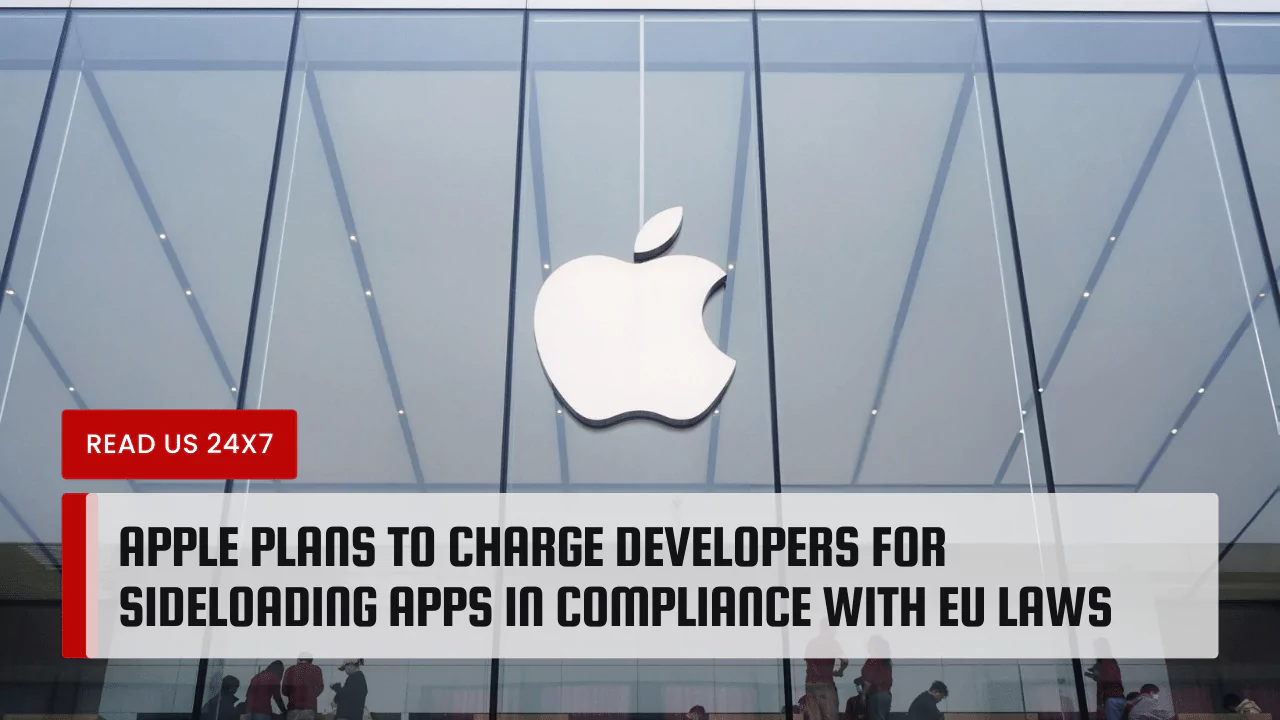Apple is preparing to comply with the new European regulations that will require it to allow users to download apps from sources outside its App Store. However, the company reportedly plans to charge developers fees for offering sideloaded apps, and will also impose some restrictions and regulations on them.
This article will explore Apple’s plans to charge developers for sideloading apps in the EU, and the potential impact of this change on the app market and the developers.
Apple’s Plans to Charge Developers for Sideloaded Apps
According to the Wall Street Journal, Apple plans to collect fees from developers that offer downloads outside of the App Store and will require a review process for these downloads. This sideloading option will only be available to iOS users in the EU, in compliance with the Digital Markets Act (DMA), which takes effect on March 7.
Commissions and Fees
Apple currently charges developers a 30% commission on app purchases and in-app purchases made through the App Store, and a 15% commission for subscriptions after the first year. The company also charges developers an annual fee of $99 to access its developer program and tools. These fees are meant to cover the costs of hosting, distributing, reviewing, and securing the apps on the App Store, as well as providing customer support and marketing opportunities for the developers.
However, under the new EU rules, developers will be able to offer their apps directly to users through their own websites or other platforms, bypassing the App Store and its fees. Apple, however, reportedly plans to charge developers a 27% fee on first-year subscriptions, and a 12% fee in the following years if users are prompted through the app to buy a subscription outside of the App Store. The company also plans to charge developers a fee for reviewing their sideloaded apps, although the amount and frequency of this fee are not yet clear.
Apple argues that these fees are necessary to ensure the quality, security, and privacy of the apps that run on its devices, and to protect its intellectual property rights and investments in its ecosystem. The company also claims that its fees are comparable to those charged by other digital platforms and services, such as Google Play, Amazon, Netflix, and Spotify.
Restrictions and Regulations
In addition to charging fees, Apple also plans to impose some restrictions and regulations on the developers who offer sideloaded apps. According to the Wall Street Journal, Apple will require developers to submit their sideloaded apps for review and will reject those that do not meet its quality, security, privacy, and content standards. The company will also require developers to obtain a certificate from Apple to sign their apps and will revoke the certificate if the app is found to be malicious or harmful. Furthermore, Apple will limit the access of sideloaded apps to certain features and services of its devices, such as Siri, Face ID, Apple Pay, and HealthKit.
Apple maintains that these restrictions and regulations are necessary to protect its users from malware, spyware, data breaches, and other security risks from sideloading apps. The company also asserts that its review process is fair, transparent, and consistent and that it applies the same rules and guidelines to all developers, regardless of their size or business model.
Potential Impact on Sideloading in the EU
The introduction of sideloading in the EU will have a significant impact on the app market and the developers, as it will create more competition, choice, and innovation for the users, but also more challenges, costs, and uncertainties for the developers.
App Review Process
One of the main benefits of sideloading for the developers is that they will be able to reach more users and customers directly, without having to go through the App Store and its fees. However, this also means that they will have to deal with the app review process that Apple plans to implement for sideloaded apps. This process may be time-consuming, costly, and unpredictable, as developers will have to submit their apps for review, pay a fee, and wait for approval or rejection. Moreover, developers will have to comply with Apple’s rules and guidelines, which may change over time or differ from those of other platforms or regions. Developers will also have to face the risk of having their apps rejected, removed, or disabled by Apple, which may affect their reputation, revenue, and customer satisfaction.
Financial Implications for Developers
Another benefit of sideloading for the developers is that they will be able to offer their apps at lower prices or for free, as they will not have to pay the App Store’s commission. However, this also means that they will have to bear the costs of hosting, distributing, marketing, and supporting their apps themselves, which may be higher than the App Store’s fees. Furthermore, developers will have to pay the fees Apple plans to charge for sideloading, which may reduce their profit margin or force them to raise their prices. Additionally, developers will have to compete with other developers who may offer similar or better apps at lower prices or for free, which may affect their market share and revenue.


